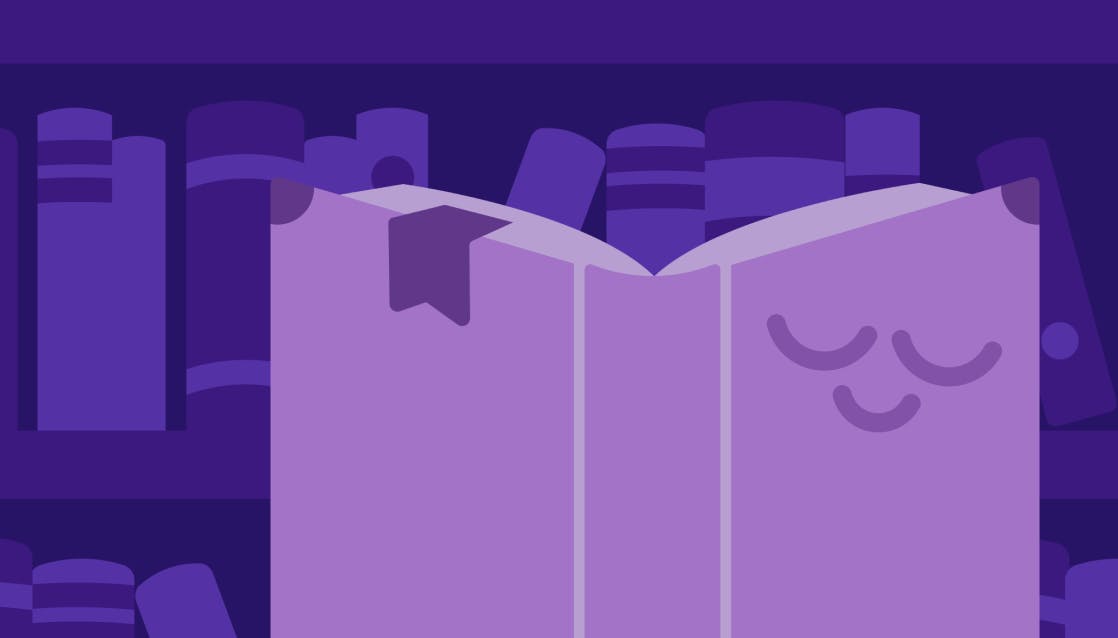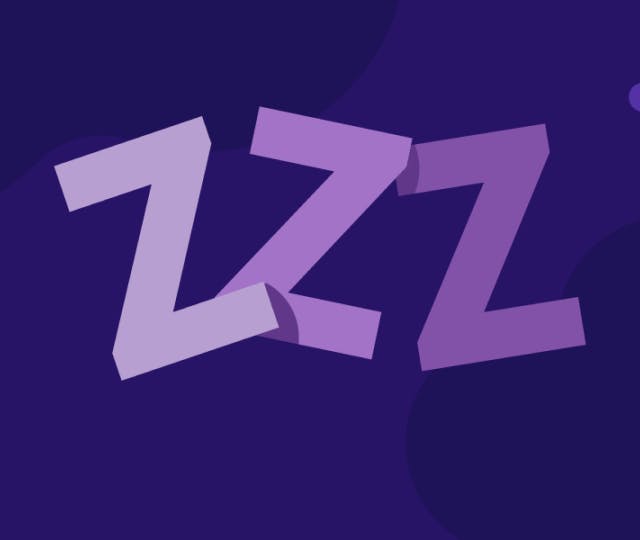Don’t make these mistakes reading before bed
By Your Headspace Mindfulness & Meditation Experts
Jul 30, 2021
We might all be familiar with the abbreviation R & R, which commonly stands for "rest and relaxation." But maybe we should think of it as “read and relax” instead. At least, we might try applying this alternative meaning to our bedtime routines. That’s because, as many of us know, curling up with a good book and reading before bed can be one of the most relaxing things to do — a great way to unwind the mind and prepare the body for quality Zzz’s.
Of course, that depends on if we’re doing it correctly.
Yes, there is a right and wrong way to read before bedtime. If we do it incorrectly, our sleep might suffer. But, if we’re doing it right, we can help ourselves de-stress and sleep better.
Ready to get better sleep?
Start your free trial
Sleep and stress
Reading before bed sounds nice, doesn’t it? But it can be difficult to pick up a book at night and fully immerse ourselves in the story on the pages when we’re stressed.
Stress might not only distract you from enjoying a book at bedtime. Whether we’re feeling tension from a thought, pain, past event, or future worry, stress can negatively impact sleep, both the duration and quality.
When someone is stressed, their nervous system releases adrenaline and cortisol, which in turn, causes the heart rate to increase. The body is amped up and kicks into “fight or flight mode,” a state of alertness that’s hardly conducive for relaxation, let alone deep, restful sleep. And it’s not just adults who experience this restlessness: many studies have associated stress or anxiety with sleep difficulties in infants and children, too.
If this continues to happen over a period of many days and weeks, the resulting insufficient sleep may likely impact our mental and physical health: performance suffers, the immune system weakens and doesn’t work at full capacity, and we're less able to enjoy the moment, among other things.
What can help? Meditation. In fact, practicing before bed, like trying a wind-down meditation* in the Headspace app, can prepare the mind for sleep using a variety of proven techniques, like noting and visualization. Reaching for the right thing to read before bed can help, too.
Reading before bed can reduce stress
There’s an age-old reason why reading a book in bed is part of so many children’s nighttime routines: reading puts us in the right headspace for a good night’s sleep.
Similar to how physical exercise strengthens the body, cognitive exercises — like reading — are important to strengthen the mind. Strong cognitive function can help reduce mental chatter, which in turn, helps us drop into a quiet state of relaxation.
Reading a book or actively listening to a story are 2 ways to keep the mind engaged. When reading, “you are forced to construct, to produce narrative, and to imagine,” says Maryanne Wolf, director of the Center for Reading and Language Research at Tufts University. “Typically, when you read, you have more time to think,” Maryanne says. “Reading gives you a unique pause button for comprehension and insight.”
The act of engaging our imaginations with a paperback allows us to enter an altered state of consciousness. While our mind is quite literally lost in the words, our body gets the chance to rest and relax. And when the body is more relaxed, it becomes easier for us to wind down and drift off.

How not to read before bed
Where sleep is concerned, how we read is very important — namely, avoiding reading on screens.
Electronic screen time before bed can do a number on our sleep. But it’s important to understand that screens themselves aren’t the problem. Rather, it’s the short-wave blue light they emit. So, if we’re part of the 90% of Americans using your phone before bed — to skim the news, browse status updates, or even read a novel — we’re not necessarily setting ourselves up for a good night’s sleep.
Research shows that blue light from screens not only shortens overall sleep time, but it can also interfere with the production of melatonin, a hormone that’s key in regulating our circadian rhythm (also known as our body clock, which regulates between our wake and sleep cycle). When melatonin production is thrown off, we’re likely to experience restless sleep.
A top sleep hygiene tip to avoid blue light from screens is to unplug an hour before bedtime. Or, if reading on your phone is crucial to one’s nighttime routine, it’s recommended to avoid blue light for at least 30 minutes before dozing off. Even more effective: consider dimming the lights, since artificial light can mess up a healthy sleep-wake cycle. It’s one simple example of how sleep hygiene can help us set the conditions for a more sound sleep.
Fortunately, various settings on most devices and apps can reduce problematic blue light by replacing it with weak red light, a feature that can be enabled to shift gradually as the sun goes down. This simple settings switch, especially when boosted by daytime blue-light blockers like protective screens, specialty light bulbs, or tinted glasses, reduces the damage to the suppression of melatonin. This gives the brain a clear signal to put the mind to bed.
Meditation and reading before bed
We’ve put away our blue light-emitting devices, there’s a paperback in our hands, we’re seated comfortably at the top of our bed with legs underneath the covers and a lamp beaming a soft light onto book pages. There’s just one distraction: the mind is cluttered, our focus is foggy, and the urge to grab our phone is testing our patience.
For many, picking up a book is not enough to escape the worries and stress of the world. If we can’t calm an overactive mind, immersing ourselves in a story might feel like a tough feat. However, if we can reduce the mind wandering, we can improve our ability to focus on a specific task.
Meditation is a practice, like reading, that can help strengthen the mind. Just like repetitions of push-ups over time can make us stronger, repetitions of mindfulness exercises can improve cognitive function, ability to focus, and productivity. In fact, over a 4-week span, mindfulness content on the Headspace app has been shown to improve focus by 14%. Another study found that 15 minutes of mindfulness meditation had a highly significant impact on the ability to reduce mind wandering.
In a less distracted and more mindful state, along with time and repetition, the choice to dive into a good book before bed may become easier. But what if we to drop into a good story without actually turning a page? With Headspace’s sleepcasts*, we can have a story read to us. Sleepcasts are a novel way of storytelling designed to help lull us into restful sleep. Different narratives, told in a non-linear way, use the power of story to transport the mind to dreamy landscapes, all while allowing the body to relax and settle.
Whether it’s a story we rely on or meditation itself, the key to improving our sleep rests on the ability to calm the mind. And if we calm the mind, the body will follow, allowing us to feel recharged and refreshed when you wake.
*available only to Headspace users
Key takeaways
-
We may have to unlearn reading-from-bed bad habits to sleep better
-
Then, we can unlock the benefits of reading before bed
-
Meditation might help us prepare the mind to read before sleep


Sleep made simple
- Find your perfect bedtime routine with hours of relaxing music, sounds, and stories to choose from
- Get more restful sleep with our Sleep Health course: exercises developed with leading sleep scientists
- Feel your best from morning to bedtime with access to hundreds of stress-relieving meditations


Stay in the loop
Be the first to get updates on our latest content, special offers, and new features.
By signing up, you’re agreeing to receive marketing emails from Headspace. You can unsubscribe at any time. For more details, check out our Privacy Policy.
- © 2026 Headspace Inc.
- Terms & conditions
- Privacy policy
- Consumer Health Data
- Your privacy choices
- CA Privacy Notice







